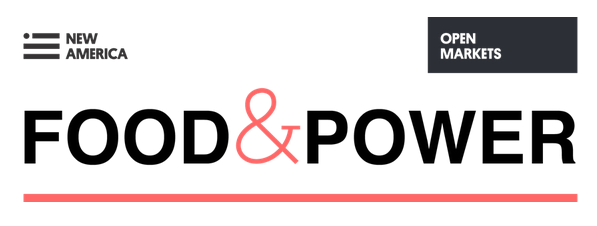Food & Power: Will Warren Buffett Take Over Texas’s Wine Industry?

from the Food & Power newsletter – sign up here
Will Warren Buffett Take Over Texas’s Wine Industry?
McLane Distributors, a subsidiary of multinational conglomerate Berkshire Hathaway, is suing to overturn a Texas regulation that prevents monopolization in the liquor industry. The company, which serves numerous retailers, is seeking a wine distribution license. But because their owner, Warren Buffett, is also invested in Walmart, which sells beer and wine in the state, the license would violate state regulations designed to prevent concentration of power in the alcohol sector.
Most states have a complex regulatory system that aims to maintain independence among alcohol producers, distributors, and retailers. The Texas version includes a unique tied-house regulation colloquially called the “one share rule,” which dictates that an alcohol distributor or producer’s parent company cannot hold even one share in an alcohol retailer. On those grounds, the Texas Alcoholic Beverage Commission (TABC) denied McLane’s license application. Texas’s Third Court of Appeals ruled in favor of the TABC, so McLane has appealed the case to federal district court.
McLane, which distributes food products to many major retailers, including Target, 7-Eleven, Wawa, Family Dollar, and Walgreens, argued in its complaint that the one share rule is “absurd” and that “there is no discernable, principled reason” for it.
But Stacy Mitchell, co-director of the Institute for Local Self-Reliance, says these regulations are important because they prevent anti-competitive behaviors that could eventually lead to larger-scale consolidation. Much federal antitrust enforcement, she says, comprises “acting around mergers [and] intervening in particular industries when we see a problem.” But tied-house regulations give the states an adaptable tool to maintain competitive markets without letting industries consolidate to the point of mega-mergers.
Tied-house regulations are part of a broader framework of alcohol regulations called the three-tier system, which keeps production, distribution, and retail of alcohol independent from one another. This system was established after the end of Prohibition in 1933 to prevent any one company from becoming dominant the alcohol sector. Each state independently regulates their alcohol industry.
McLane’s suit isn’t the only case this year that has taken up Texas’s one share rule. In March, Cadena Comercial USA Corp. brought a case before the Texas Supreme Court that challenged the TABC’s decision not to issue them a retail liquor permit because Cadena’s parent company also holds stock in a brewer. Fomento Económico Mexicano, S.A.B. de C.V., the parent company, has a 20% interest in Heineken. The Court ruled 6 to 2 in favor of the TABC.
Bethany Hatef, an attorney with McDermott Will & Emery who specializes in alcohol regulation, says that the TABC is “fairly strict” in its interpretation of its tied-house laws. As a consequence, she says, the alcohol industry is watching this case closely, because it could reshape how alcohol distribution and retail businesses operates in the state.
In other sectors, common stock ownership has been found to have anti-competitive effects. Martin Schmalz, an assistant professor at the University of Michigan, has studied the effects of common ownership. He told ProMarket that the reason common ownership can be a threat to competition is that it “reduces the incentives to compete” and “changes the objective function of the firm to internalize the profits of competitors.” Schmalz’s research on the airline sector found that common ownership in that sector resulted in ticket price hikes.
Walmart has been working to overturn state alcohol regulations across the country. The company backed a bill in Florida, vetoed in May by Governor Rick Scott, that would have allowed grocery stores to sell liquor. They also backed a successful effort in Kansas to raise the alcohol content of beers sold in grocery stores from 3.2% to 6%, which will go into effect in April 2019.
The company is also being sued for allegedly falsely marketing its private label beer, Trouble Brewing, as a craft beer.
Walmart has 585 stores in Texas, including over 80 Sam’s Club locations. Currently Walmart can’t sell liquor in Texas, but they sued in 2016 to overturn that restriction as well.